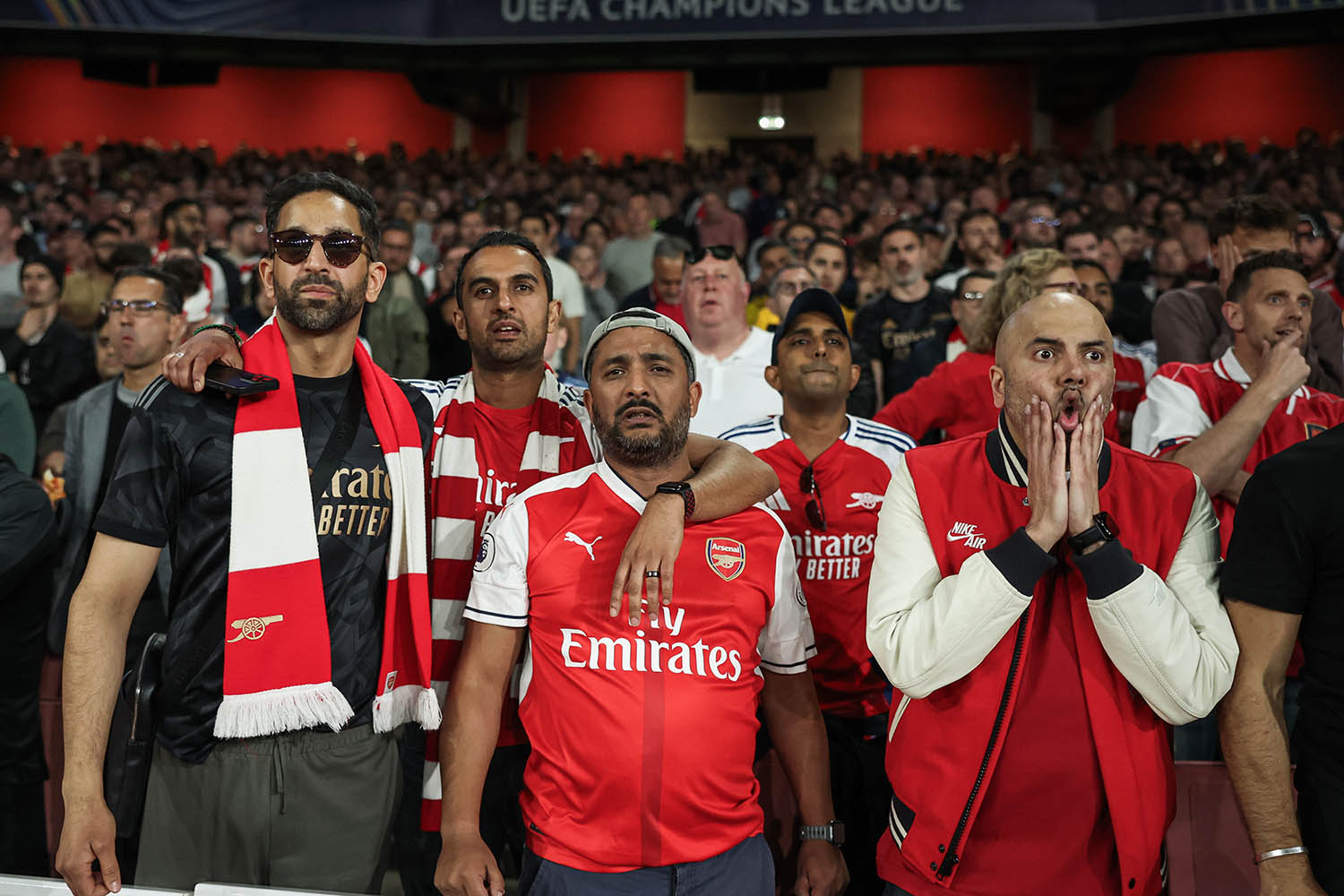All that remains, then, is the final indignity. In all senses but the administrative, Arsenal’s campaign is over. A season that seemed so rich in promise has curdled into regret. There are three more games to play, an obligation and an ordeal, but nothing tangible to play for: the Premier League title is gone for another year; as of Wednesday, the Champions League too.
That would be painful enough. Worse is that, with the bruises from that defeat still livid, Mikel Arteta and his players must arrange themselves into a guard of honour to welcome Liverpool onto the pitch at Anfield. A fixture that might have been a championship decider is a Calvary instead: the desolate and the defeated bowing to their conquerors.
The energy around Arsenal this season has felt restless, at times almost wild. The early years of Arteta’s tenure were marked by a methodical, trust-the-process approach, a sense that his determination to exploit every marginal gain – the set-piece coaching and training ground Labrador and possibly apocryphal pickpockets – would deliver something tangible, something heavy and metallic, eventually.
The contrast, now, is stark. A desperation, an urgency has set in, both off the pitch and on it. A small but commendably committed section of the fanbase has spent much of the season constructing an elaborate conspiracy theory that appears to centre on the idea that neither the Premier League nor UEFA, as represented by their whistle-wielding henchmen, wants a globally popular and intensely marketable London-based club to end up as champions.
At the Emirates last week, the fourth official had to man-mark Arteta to prevent him bouncing onto the pitch during the first leg against Paris Saint-Germain. He explained, before the return game, that actually Liverpool had won the title this season with fewer points than Arsenal acquired in the last two, neglecting to mention that this season is not yet over.
In the aftermath of elimination, during an excruciatingly awkward interview with CBS Sports’s remarkably composed Anita Nneka Jones, he claimed not only that there had not been a “better team” in the Champions League than Arsenal, but that several members of Paris Saint-Germain’s coaching staff had told him so. Luis Enrique, his PSG. counterpart, denied that version of events.
A tendency to try and talk a more appealing reality into existence appears to have extended to his players, too: Declan Rice mentioned after the game that Arsenal had run PSG close despite missing “five or six” key members of the squad, which rather overestimates the importance of Takehiro Tomiyasu. (The correct estimate is “definitely two, maybe three.”)
This frenzy is not especially hard to understand. Arsenal seemed, at the start of the season, like the most obvious contenders to the league’s hegemon, Manchester City; when Pep Guardiola’s team started, and continued, to stumble, it felt like Arsenal’s time had come. To a fanbase now entering a 22nd year without a Premier League title, this has been a golden opportunity, wasted.
For Arteta, though, it represents the first real moment of peril in his managerial career. The progress Arsenal have made under his aegis is indisputable. He has taken a team drifting as close to irrelevance as a modern superclub can and restored them to the front rank of powers in England. He has done it with a wage bill that is both enormous compared to all but three or four teams in Europe and some way behind those of Manchester City, Liverpool and Manchester United.
In return, Arsenal’s fans have done as instructed. They have trusted the process. They have accepted that Arteta was taking them on a journey. Their patience, though, is not limitless. The point of a journey, after all, is that it has a destination. Arteta has one more season to reach it, or he might find that all of that energy, all of that frenzy is turned towards him.
Newsletters
Choose the newsletters you want to receive
View more
For information about how The Observer protects your data, read our Privacy Policy
Photograph by Alex Pantling – UEFA via Getty Images

